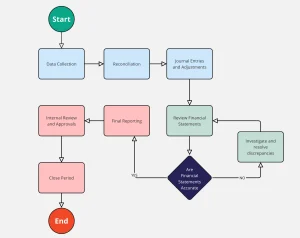
Cropped high angle shot of a senior couple working on their finances at home
A common problem in the area of mutual funds is the tax consequences of the fund’s portfolio turnover. The issue is that the tax is triggered upon the redemption of shares, rather than on ordinary income or capital gains. Redeeming shares shifts the tax consequences of the capital gains to the remaining shareholders.
Ordinary income vs capital gains
When it comes time to filing your taxes, it’s important to know the difference between ordinary income and capital gains. The amount you pay in taxes largely depends on the type of investment you own, as well as how long you hold the asset.
Capital gains are a profit you make from selling a capital asset, such as a stock. This can include the sale of a car, real estate, or traditional investments. While these types of income are often taxed, they can be beneficial to an investor. They generally qualify for lower tax rates than ordinary income.
In the U.S., short-term capital gains are taxed at ordinary income rates, while long-term capital gains are taxed at a lower rate. This is because long-term capital gains are the result of assets you have held for a year or longer.
You can also choose to reinvest your capital gains. As a result, they will not be taxable in a tax deferred account. However, you will still have to report the money as income to the IRS.
Short-term capital gains vs long-term capital gains
Long-term capital gains and short-term capital gains are taxed differently, and knowing the difference can help you plan your investment with the IRS in mind.
In general, long-term capital gains are the profits from holding an asset for more than a year, while short-term gains are the profit from selling an asset within a year. Unlike other forms of income, capital gains are usually taxed at a lower rate than other types of income, but the rates vary depending on the taxpayer’s income and tax bracket.
Long-term capital gains are typically taxed at 0%, 15%, or 20%. Short-term capital gains are subject to ordinary income tax rates of up to 37%, depending on your income and tax bracket. The rates are more variable than you may think, and you might be able to reduce your tax liability by using losses on your investment to offset your income.
Although the federal tax system is a progressive system, the rate you pay depends on your individual situation. It can range from a low of 0% to as high as 25%, with some states taxing capital gains at a much higher rate.
Redeeming shareholders shift tax consequences of capital gains to remaining shareholders
The tax treatment of stock redemption is not particularly exciting but the payment of good old fashion cash has no ill effects on the taxable side of the ledger. There are a few notable exceptions but for the most part, the eponymous has not been a drag on the pocketbook. With a little forethought and planning, the good times are sure to follow. And the best part is, it is the shareholders who reap the rewards. That said, the rewards are not all that lucrative. After all, is the corporation worth a shit load of cash?
Nonetheless, a recent study found that redemption is not a universally good thing. One reason is that the aforementioned execs may be forced to fork over a significant portion of their hard earned money. This is in no small part due to the tax exempt nature of the aforementioned entity. For this reason, a well-rounded strategy is a must.
Aftertax effects of portfolio turnover on mutual fund returns
If you’re a mutual fund investor, you may have noticed how the aftertax effects of portfolio turnover on your fund’s returns can affect your investment. Portfolio turnover is the percentage of your portfolio that changes each year. This can be good or bad. A high turnover rate can lead to capital gains, but it can also increase the fees you pay.
As a result, you might want to invest in a fund that has a low turnover rate. Some investors believe that funds with lower turnover rates are the best way to create a tax-efficient mutual fund. But if you look at the aftertax returns of funds that have low turnover, you may find that they have less market share than those with higher turnover. The higher the aftertax returns of your fund, the more market share it will have.
When a mutual fund has a high turnover rate, it is more likely to incur capital gains. If you’re in a high tax bracket, this can put you at risk.



